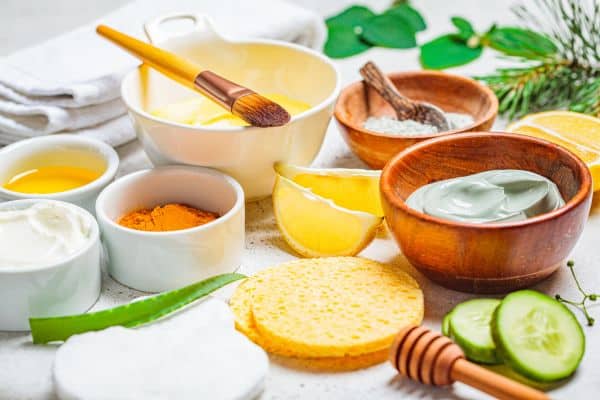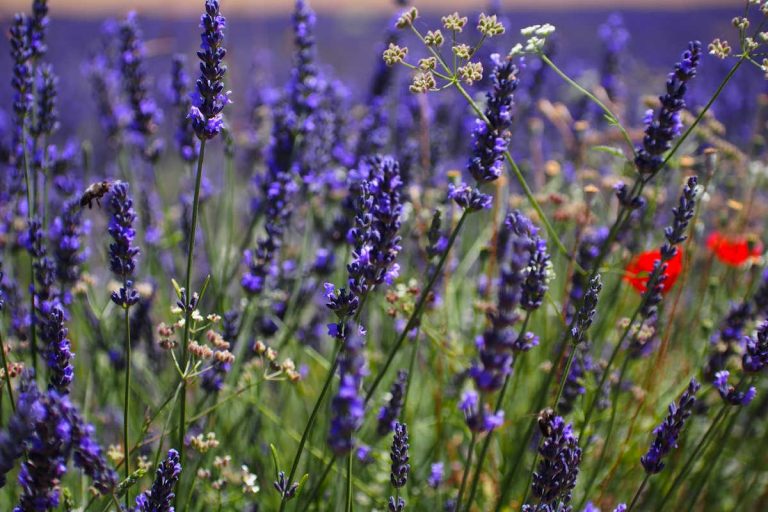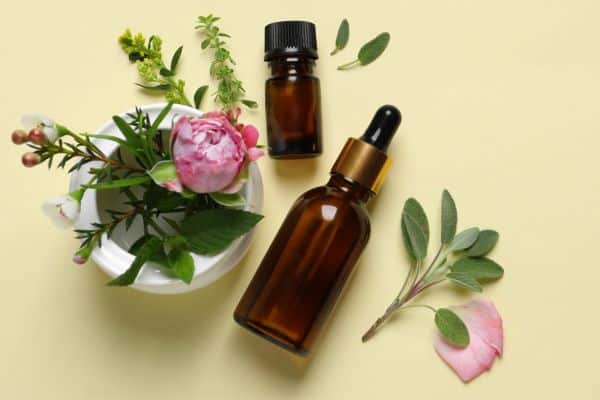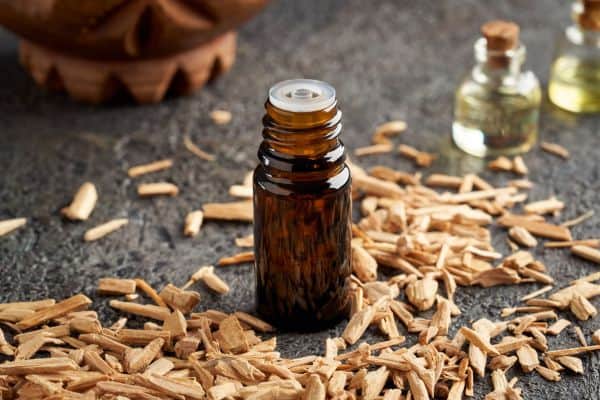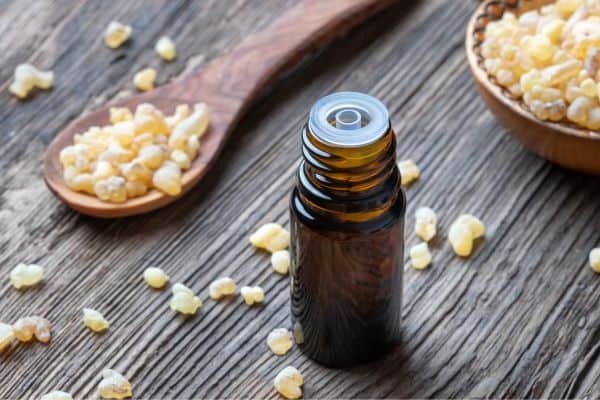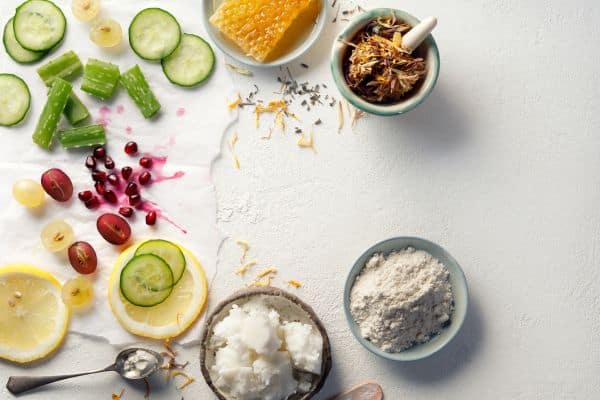If you’re on a mission to tame oily skin and achieve a natural (yet not greasy) glow, you’re in the right place – in this post, we dive into a holistic approach to skincare that goes beyond topical treatments and encompasses a regimen that nurtures the body AND the mind.
Get ready for an APPROACHABLE daily routine that embraces the power of plant-based ingredients, nourishing whole foods, consistent exercise, mindful practice, and subtle lifestyle adjustments.
And, for all of my skincare entrepreneurs, read to the very bottom to snag a resource that will help you to educate YOUR audience about the ease and effectiveness of a holistic approach to oily skin management!

This post may contain affiliate links, meaning I get a commission if you decide to make a purchase through my links (at no cost to you). Please read the disclosure for more information.
What is Oily Skin?
Oily skin is a skin type characterized by an overproduction of sebum, the natural oil produced by the skin’s sebaceous glands.
Sebum is essential for maintaining skin hydration and environmental protection. However, excessive amounts of sebum lead to oily skin.
This can lead to various outcomes, including:
- Excessive shine, especially on the forehead, nose, and chin (referred to as the ‘T-zone’).
- Enlarged pores, often visible, especially on the nose and cheeks.
- Persistent acne breakouts, including blackheads and whiteheads.
- Skin feeling greasy or slick, particularly by midday.
- Makeup tends to slide off or require frequent touch-ups.
- Skin may appear thick or coarse in texture.

What Causes Oily Skin?
Several factors can contribute to the development of oily skin, including:
Oily Skin Cause #1: Incorrect Skincare Practices
Overwashing the face or using harsh, drying skincare products can strip the skin of its natural oils, leading to a rebound effect where the skin produces even more oil to compensate.
Oily Skin Cause #2: Hormonal Changes
Fluctuations in hormone levels, such as those occurring during puberty, menstruation, pregnancy, and menopause, can influence sebum production.
Increased androgen hormones, such as testosterone, are often associated with higher sebum production.
Oily Skin Cause #3: Stress
Stress can trigger hormonal changes, including the release of cortisol, which may influence sebum production.
Oily Skin Cause #4: Medications
Certain medications, such as hormonal contraceptives, corticosteroids, and some antipsychotics, may impact sebum production and contribute to oily skin.
Oily Skin Cause #5: Diet
Some studies suggest that certain foods, such as high-glycemic foods and dairy products, may contribute to increased sebum production.
Oily Skin Cause #6: Weather Conditions
Hot and humid weather can stimulate the sebaceous glands to produce more oil.
Cold and dry climates may also lead to increased oil production as the skin tries to compensate for the lack of moisture.

What is Holistic Skincare?
Welcome to a journey of self-care that goes BEYOND the surface!
And, if you’re anything like me, get ready to be obsessed with thinking about how EVERYTHING we do impacts the skin we’re in!
Oily skin can be a signal from your body that it’s time to reevaluate your skincare routine and embrace a holistic approach to nourishing your skin.
The definition of ‘holistic’ is to think about the WHOLE person rather than just the symptom; holistic skincare considers every detail of the daily experience of an individual to benefit their skin’s health from the inside out.
This is all about understanding that everything in your body, mind, and environment is connected and impacts your overall health and wellness (which directly impacts the skin’s appearance).
Holistic skincare goes far beyond just using the ‘right’ type of product for your skin, and includes all of the following for a well-rounded skincare regimen:
- Plant-based skincare products
- Proper hydration
- Regular exercise
- A whole-food diet
- Deep sleep
- Stress management
- Mindfulness practice
We’ll cover many of these in this post to manage oily skin, but if you’d like a PDF overview, be sure to download the super-approachable guide below:
Best Natural Ingredients for Oily Skin
Plant-based skin care products are best for overall wellness, as they are easy on the immune system and have a far lower risk of creating or exacerbating allergies.
If you are a DIY skin care maker (and even a handmade business owner), use the suggested ingredients below for amazing, chemical-free formulations for oily skin.
If you are not a maker, read the labels of the oily skin care products you are purchasing and aim for items that include many of the essential oils and carriers listed below.
Eucalyptus Essential Oil
Eucalyptus (Eucalyptus globulus) essential oil is an astringent oil that can decrease sebum production by reducing gland size.
Geranium Essential Oil
Geranium (Pelargonium x asperum) essential oil relieves excess oil and is used for chronic skin inflammation.
Grapefruit Essential Oil
Grapefruit (Citrus paradisi) essential oil has a cooling effect when applied to the skin and is used to contract and tighten skin.
Grapeseed Oil
Grapeseed Oil (Vitis vinifera) is an astringent carrier oil that makes skin soft, elastic, and evens out skin tone.
Jojoba Oil
Jojoba Oil (Simmondsia chinensis) is a carrier oil (that is actually a liquid wax) with an indefinite shelf life and is non-allergenic, incredibly moisturizing, and anti-inflammatory.
Lemon Essential Oil
Lemon (Citrus limon) essential oil is antibacterial, anti-inflammatory, and an astringent that can contract and tighten the tissues.
Rosemary Essential Oil
Rosemary (Rosmarinus officinalis ct. 1,8 cineole or ct. camphor) essential oil is used for cell regeneration and is an astringent that helps to regulate oily secretions of the hair follicles.
Sweet Almond Oil
Sweet Almond Oil (Prunus dulcis) is a carrier oil that is rich in minerals and vitamins, and easily absorbed for deep moisture on all skin types.
Sweet Orange Essential Oil
Sweet orange (Citrus sinensis) essential oil is an antiseptic, anti-inflammatory, and astringent that can tone the skin and reduce secretions.
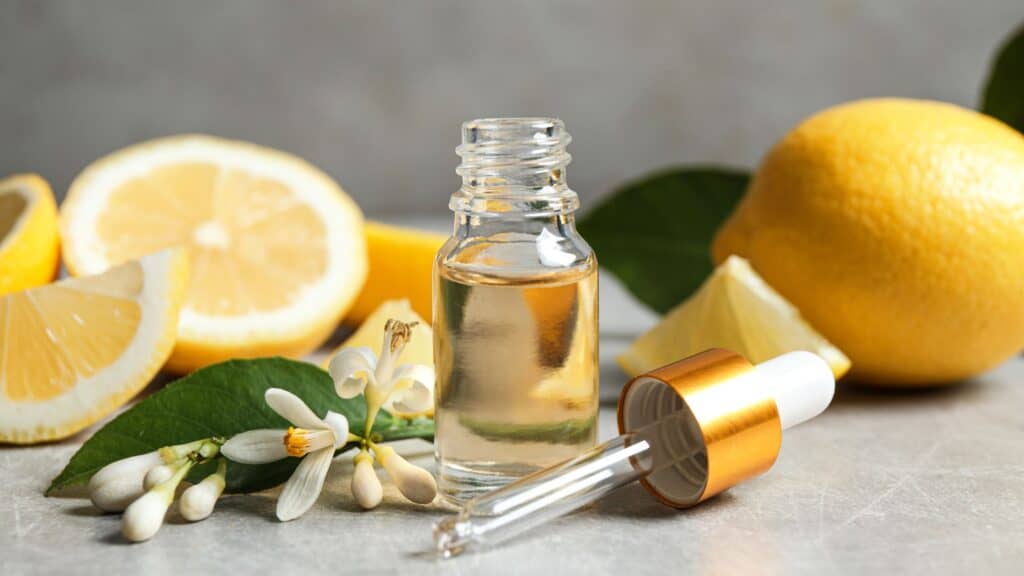
Holistic Skincare Regimen for Oily Skin: Best Foods (with Recipe Ideas)
Oily Skin Food #1: Fatty Fish
Fatty fish, rich in omega-3 fatty acids, can help balance oil production in the skin by reducing inflammation and regulating sebum production, leading to improved skin health and potentially reducing oiliness.
Recipe Idea: Chili Lime Baked Trout
Oily Skin Food #2: Citrus Fruits
Citrus fruits contain high levels of vitamin C and antioxidants, which can help regulate oil production, promote collagen synthesis, and provide a brightening effect on the skin, ultimately contributing to a healthier complexion for oily skin types.
Recipe Idea: Perfect Summer Fruit Salad
Oily Skin Food #3: Chia/Flaxseeds
Chia and flax seeds are rich sources of omega-3 fatty acids, which possess anti-inflammatory properties and can help regulate sebum production in oily skin, leading to a more balanced complexion and reduced oiliness.
The high fiber content of chia and flaxseeds aids in toxin removal, promoting clearer skin.
Recipe Idea: Super Seed Snack Bars
Oily Skin Food #4: Tofu and Legumes
Tofu and legumes are rich in protein and contain zinc, which helps regulate oil production and control sebum levels in oily skin.
The nutrient-dense profiles of tofu and legumes support overall skin health, potentially reducing inflammation and promoting a clearer complexion.
Recipe Idea: Crispy Baked Sesame Tofu
Oily Skin Food #5: Sweet Potatoes
Sweet potatoes are high in vitamin A, which helps regulate oil production in the skin and promotes cell turnover, reducing the likelihood of clogged pores and excess oiliness.
The antioxidant content of sweet potatoes may help combat inflammation, contributing to a clearer complexion for oily skin types.
Recipe Idea: Mediterranean Baked Sweet Potatoes
Oily Skin Food #6: Berries
Berries are rich in antioxidants and vitamins, particularly vitamin C, which can help regulate sebum production and reduce inflammation in oily skin.
The high fiber content of berries also aids in detoxification, potentially leading to a clearer complexion and balanced oil levels.
Recipe Idea: Roasted Summer Berries
Oily Skin Food #7: Spinach and Kale
Spinach and kale are rich in vitamins A and C, as well as antioxidants, which help regulate sebum production and reduce inflammation in oily skin.
Additionally, their high antioxidant content supports overall skin health, potentially leading to a clearer complexion and balanced oil levels.
Recipe Idea: Creamy Garlic Skillet Chicken with Spinach
Oily Skin Food #8: Tomatoes
Tomatoes are rich in antioxidants like lycopene, which can help regulate sebum production and reduce excess oiliness in the skin.
The acidic nature of tomatoes can help balance the skin’s pH levels, potentially minimizing the appearance of pores and promoting a clearer complexion for oily skin types.
Recipe Idea: Tomato Caprese Salad
Oily Skin Food #9: Carrots
Carrots are rich in beta-carotene, which the body converts into vitamin A, an essential nutrient for skin health.
Vitamin A helps regulate oil production, reduces inflammation, and promotes cell turnover, contributing to a balanced complexion and reduced oiliness in the skin.
Recipe Idea: Orange-Roasted Rainbow Carrots
Oily Skin Food #10: Green Tea
Green tea contains catechins, powerful antioxidants known for their anti-inflammatory properties, which can help regulate sebum production and reduce excess oiliness in the skin.
The astringent properties of green tea may help shrink pores and control shine, leading to a clearer and more balanced complexion for oily skin types.
Recipe Idea: Green Tea Latte

Holistic Skincare Regimen for Oily Skin: Foods to Avoid
Some studies suggest a link between high-glycemic foods and dairy products with increased acne and oily skin.
High-Glycemic Foods and Oily Skin
High glycemic foods are those that cause a rapid increase in blood sugar levels due to their quick digestion and absorption.
Examples of high-glycemic foods include:
- White bread
- White rice
- Sugary cereals
- Baked goods (cakes, cookies, pastries) made with refined flour and sugar
- Potato products (such as mashed potatoes and french fries)
- Sugary drinks (soda, fruit juices)
- Candies and sweets
- Processed snacks (chips, crackers)
- Instant oatmeal with added sugars
- Certain fruits such as watermelon and pineapple (although fruits generally have natural sugars, some have higher glycemic indexes than others)
Consuming high-glycemic foods in moderation and balancing them with low-glycemic foods can help maintain stable blood sugar levels and promote overall health.
Dairy Products and Oily Skin
Dairy products contain various components such as hormones, saturated fats, proteins, high-glycemic indexes, and sugars that can potentially contribute to increased sebum production and oily skin for some individuals.
- Milk
- Cheese
- Butter
- Cream
- Yogurt
- Ice Cream
- Whey Protein Supplements
- Processed Dairy Snacks (e.g., cheese crackers)
- Flavored Dairy Drinks (e.g., chocolate milk)
- Dairy-based desserts (e.g., custard, pudding)
It’s important to note that while dairy products may contribute to oily skin for some individuals, NOT EVERYONE will experience the same effects.
Factors such as genetics, overall diet, skincare routine, and individual sensitivities play a role in how dairy affects skin health.
If you are trying to figure out what is impacting your oily skin, consider reducing your intake or eliminating dairy products from your diet and monitor how your skin responds.

Holistic Skincare Regimen for Oily Skin: Daily Routine
- Cleanser (Oil-Based, Mild)
- In the morning and the evening, use an oil-based cleanser to gently wash away any impurities and dead skin cells.
- Toner (Astringent)
- Spray a gentle toner over a cleansed face two times a day.
- Roman Chamomile Hydrosol is a recommended toner for oily skin.
- Moisturizer
- A plant-based, 100% oil facial serum is recommended in place of water-based creams.
- Always apply face serum at night, and in the morning if possible with your ‘get out the door’ routine (it needs a bit to soak in before applying makeup).
- If you are a DIY skin care maker, check out this oily skin face serum recipe that is easy enough for beginners (yet produces amazing results!)
- For an all-over body moisturizer, there is nothing better than plain jojoba oil.
- Hydrate
- Men: 13 cups (~3 liters) of water a day
- Women: 9 cups (~2+ liters) a day
- Exercise
- The amount of exercise recommended varies widely based on age and health conditions.
- The average adult (ages 18-64) needs 150-300 minutes of moderate-intensity aerobic physical activity (this is just to provide a frame of reference to start with). Visit the World Health Organization here for more info.
- Healthy Meals
- Eating for wellness also impacts the health and appearance of the skin greatly. Try adding one new recipe a week that is specific to oily skin (see recommendations in the section above).
- Mindfulness Practice
- The goal of mindfulness is to achieve focused relaxation while paying attention to thoughts and sensations and being fully present.
- This can be achieved through meditation, gratitude practice, belly breathing, mindful walking, body scans, and more.
- Get Fresh Air
- Fresh outside air has tons of positive impacts on overall health (and most individuals aren’t getting close to enough of it).
- Breathing fresh air increases oxygen in the blood, increases energy, improves digestion, cleans the lungs, relieves stress and anxiety, improves cell function, and improves cognitive abilities…to name just a few benefits (and all of these impact the skin’s glow)!
- Makeup Remover
- If you’re washing your face with an oil-based cleanser as mentioned in the first step, you don’t need another product – this should do the trick for most makeup.
- For some waterproof makeup that is a bit more stubborn, grab some reusable makeup remover pads.
- Under-Eye Salve
- Apply under-eye salve at night (after cleansing, spraying toner, and applying face serum)
- If you are a DIYer, try this handmade under-eye salve recipe
- No Screen Time Before Bed
- Sleep experts recommend cutting off screen time an hour before bed (or two hours for the best benefits…time to bust out that library card!)
- 8+ Hours of Sleep
- It’s called ‘beauty sleep’ for a reason, as deep sleep (slow-wave sleep) stimulates cell turnover and collagen production.
- Deep sleep reduces inflammation and combats issues, such as eczema and acne, and is essential for memory, mood regulation, brain health, and immune function.
- Gently Exfoliate 2-3x a Week
- Use a gentle, natural exfoliator a couple of days a week (check out this all-natural sugar scrub with citrus essential oils) will help keep skin fresh and oil manageable.
Holistic Skincare Regimen for Oily Skin: More Lifestyle Tips
Oily Skin Tip #1: Gentle Cleansing
Cleanse your face twice daily with a gentle cleanser. Steer clear of harsh or alcohol-based products, as they can strip your skin of natural oils, leading to increased oil production.
Oily Skin Tip #2: Non-Comedogenic Cosmetics
Choose oil-free and non-comedogenic makeup products to avoid clogging pores. Look for products labeled as “matte” or “oil-free.”
Oily Skin Tip #3: Exfoliate
Choose a gentle exfoliator (such as clay masks) to remove dead skin cells, prevent clogged pores, and control oil.
Oily Skin Tip #4: Bedding
Use breathable, natural cotton pillowcases and sheets for your bedding. They allow better air circulation and absorb excess oil.
Aim to change your pillowcases and sheets at least once a week to prevent the accumulation of oils, sweat, and bacteria.
Oily Skin Tip #5: Humidifier
In drier climates or during the winter, using a humidifier in your bedroom can add moisture to the air, preventing your skin from overproducing oil in response to dry conditions.
Oily Skin Tip #6: Bathing
Use lukewarm water when showering. Hot water can strip your skin of natural oils, leading to increased oil production.
Oily Skin Tip #7: Stress Management
Stress can contribute to oily skin. Practice stress-reducing activities like yoga, meditation, or deep breathing.

Holistic Skincare Education for Handmade Business Owners
Great news for my fellow skin care business owners!
We both know that our customers can benefit HUGELY from this information because I can tell you right now, that this holistic approach is not being discussed in a typical doctor’s office (yet…but WE are the change-makers!).
Here at DIY Skin Care Business, my goal is for us as educated business owners to be the bridge between skin care *just* being skin care, to it being a SHIFT in our audiences’ overall health and wellness.
I’ve made it INCREDIBLY easy for you to share all of the information above in a completely editable template that you can tweak to your liking (or simply just pop in your business name, URL, and you’re done)!
Include the oily skin 101 in customer shipments, on your website, sell it as a printable, or hand it out at markets…however it makes sense for you and your brand.
Click below for more information on the template and start spreading the news about holistic skincare benefits for total mind and body wellness!
Grow Your Skin Care Business!
Browse through the resources below to boost your handmade business visibility and profitability!


